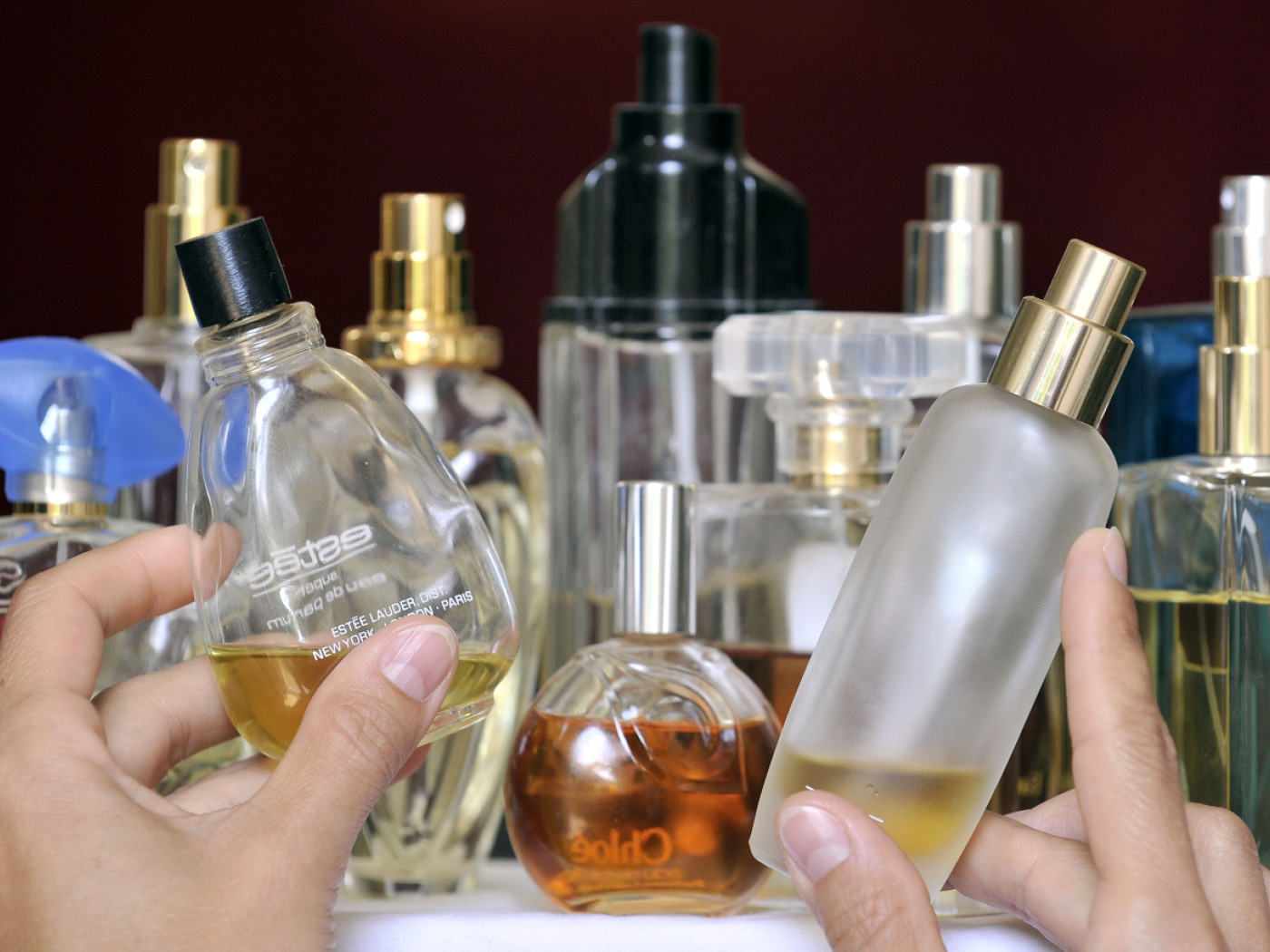
Swiss perfume shops warned about air pollution

The work inspectorate in the Swiss city of Lausanne has been looking into air quality in perfume and cosmetics shops. It conducted an awareness-raising campaign in ten establishments in Lausanne.
+Get the most important news from Switzerland in your inbox
The results are reassuring, but the report stresses the need to ensure sufficient ventilation to guarantee staff health.
“Whether natural or artificial, scents are not neutral and constitute air pollutants,” said Johanna Zabaleta, a work inspector, in a press release. “They stimulate and even overload the olfactory and nervous systems.”
From May 7-8 this year, the Lausanne work inspectorate, together with an occupational hygienist, visited ten establishments in Lausanne of different sizes (from two to 30 people) offering bulk or packaged products. The measurements were taken in the sales area and storage areas, which are often used by staff as break rooms.
“The results we obtained are reassuring overall,” Zabaleta said. “The majority of establishments have moderate concentrations of volatile organic compounds (VOCs) and low levels of CO2. No known endocrine disrupters were found”.
+ Switzerland fails to meet WHO air quality standards
Attention to storage
Only two establishments had air quality levels above the measurement standards. This was due to unpackaged products, the diffusion of fragrances in the sales area and inefficient ventilation. Unlike sales areas, 60% of storage areas are not properly ventilated, even though they are used as break rooms in seven out of the ten establishments visited, according to the inspectorate’s observations.
More than half of the workers interviewed said they had experienced discomfort or symptoms such as headaches or problems concentrating or breathing attributable to poor air quality, the city added. Recommendations have been made to improve information for staff and ensure sufficient ventilation at all times.
Each establishment visited received a report indicating the shortcomings in terms of work premises, management of scent sources, information for workers and solutions to remedy the situation. Both these recommendations and the information provided during the visits were welcomed, the inspectorate added.
Translated from French by DeepL/ts
We select the most relevant news for an international audience and use automatic translation tools to translate them into English. A journalist then reviews the translation for clarity and accuracy before publication.
Providing you with automatically translated news gives us the time to write more in-depth articles. The news stories we select have been written and carefully fact-checked by an external editorial team from news agencies such as Bloomberg or Keystone.
If you have any questions about how we work, write to us at english@swissinfo.ch

In compliance with the JTI standards
More: SWI swissinfo.ch certified by the Journalism Trust Initiative




























You can find an overview of ongoing debates with our journalists here . Please join us!
If you want to start a conversation about a topic raised in this article or want to report factual errors, email us at english@swissinfo.ch.